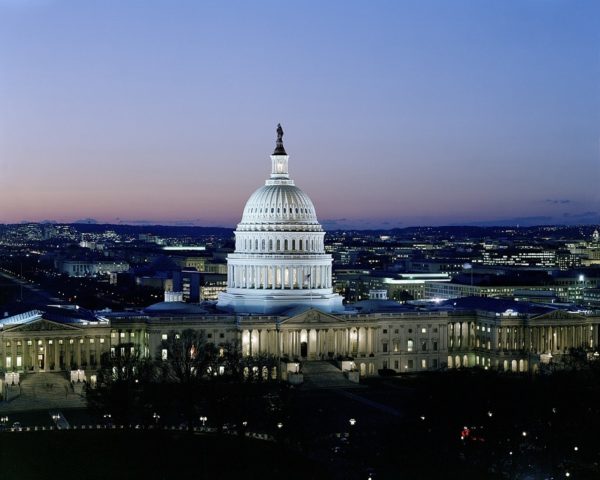On September 27, 2016, Commissioner of Customs and Border Protection (CBP) Gil Kerlikowske testified before the Trade Subcommittee of the U.S. House of Representatives Ways and Means Committee regarding the new Trade Facilitation and Trade Enforcement Act (TFTEA) and Enforce and Protect Act (EAPA), which is specifically designed to enforce antidumping and countervailing duty evasion. The Subcommittee, chaired by Dave Reichert (R-WA), questioned the Commissioner about shortfalls in trade enforcement and how the new laws would actually be implemented.
Representative Pat Meehan Criticized the Current Regulations for Limiting Qui Tam cases
Many of the Committee Members’ questions surrounded the Acts’ ability to detect and enforce trade laws, particularly antidumping and countervailing duties. Representative Pat Meehan (R-PA) specifically recognized the importance of qui tam lawsuits, stating “qui tam laws were some of the most effective [resources]” he had as a former U.S. Attorney and recognized the value of qui tam laws in enforcing trade law. Rep. Meehan further questioned the EAPA’s narrow definition of “parties to the investigation,” which currently does not include government agencies, such as the Department of Justice. Representative Meehan expressed his concern that this unduly narrow definition would limit inter-agency cooperation and effectiveness of qui tam lawsuits.
The classification of being a “party to the investigation” is vitally important to participation in EAPA AD/CVD evasion investigations. Only “parties to the investigation” can submit arguments regarding evasion allegations and receive information about the investigation, including CBP’s final determination of whether evasion occurred. Rep. Meehan’s concerns are well-placed because under the current law the Department of Justice would not be permitted to submit arguments or even learn of the outcome of EAPA investigations. This is particularly puzzling considering that collateral or sequential False Claims Act cases could mirror and affect EAPA investigations, and vice versa, as each are alleging the same wrongdoing. Therefore, obstructing DoJ involvement in EAPA investigations could lead to duplicative cases wasting government resources, delaying justice for American businesses harmed by trade evasion and even lead to contradictory case outcomes.
Other notable quotes from the hearing included:
Chairman Reichert opened the hearing by stating: “Robust enforcement of our trade agreements and our trade laws is essential to ensuring that American businesses and workers are treated fairly by our trading partners. Strong trade enforcement goes hand-in-hand with the opening of new markets through trade agreements … Today, we will have an important discussion about CBP’s efforts to implement [the Customs bill], which, if carried out effectively, will enhance our global competitiveness, level the playing field for our businesses, and prevent our competitors from gaining an unfair advantage.”
Commissioner Kerlikowske responded by saying: “We understand and recognize the importance of our enforcement efforts … Illegal and fraudulent trade practices threaten our economic competitiveness, the livelihood of American workers, and consumer safety. I certainly want to thank the Members of Congress and particularly this Committee for the [Customs bill] … CBP has been around since 2003 and had never been authorized. Now having the authorization and our regulations and rules all located in one place along with our increased enforcement authority is a huge milestone.”
Highlighting the focus of antidumping and countervailing duty enforcement:
Committee member Rep. Todd Young (R-IN) said: “I feel very strongly—as do so many of my colleagues on both sides of the aisle—that we have to be very vigilant about enforcing trade agreements. This is why … we’ve given you new tools to go after those who would evade antidumping and countervailing duties provisions.”
Rep. Pat Tiberi (R-OH) also said: “Unfair pricing and subsidies by foreign governments distort the free flow of goods and services, and keep American workers from competing on a level playing field. To protect jobs and ensure our economy is growing, we must stop foreign competitors from cheating and undercutting our domestic producers. That is why I testified before the U.S. International Trade Commission in May to ensure our trade laws are strictly enforced, and will continue to fight tooth and nail for fair trade.”
Rep. Tim Murphy (R-PA) and Steel Caucus co-chair reiterated: “This past year, the Congressional Steel Caucus shepherded historic trade enforcement legislation and opened new markets to American-made steel products. The legislation is in place, U.S. Customs and Border Protection has the tools at their disposal, but now they must continue to take action to hold foreign competitors accountable through increased detection and evasion prevention at our borders. I implore Commissioner Kerlikowske to aggressively enforce our new trade laws to the fullest extent to protect American workers from foreign cheaters.”
Watch the full Ways and Means Committee Hearing






Talk with an Expert
Frohsin Barger & Walthall
Call 205.933.4006 or
Send us a Message